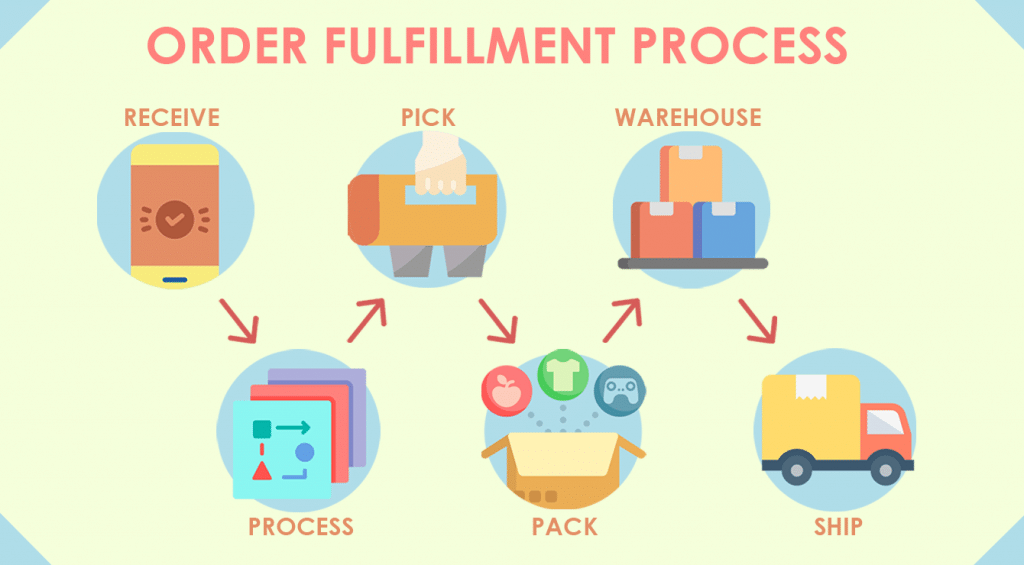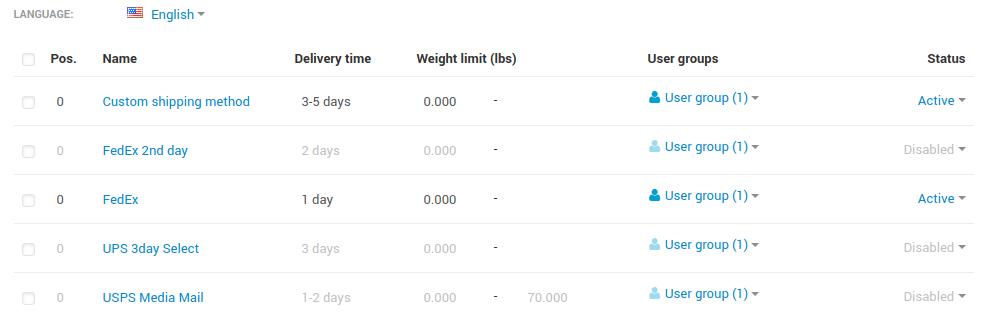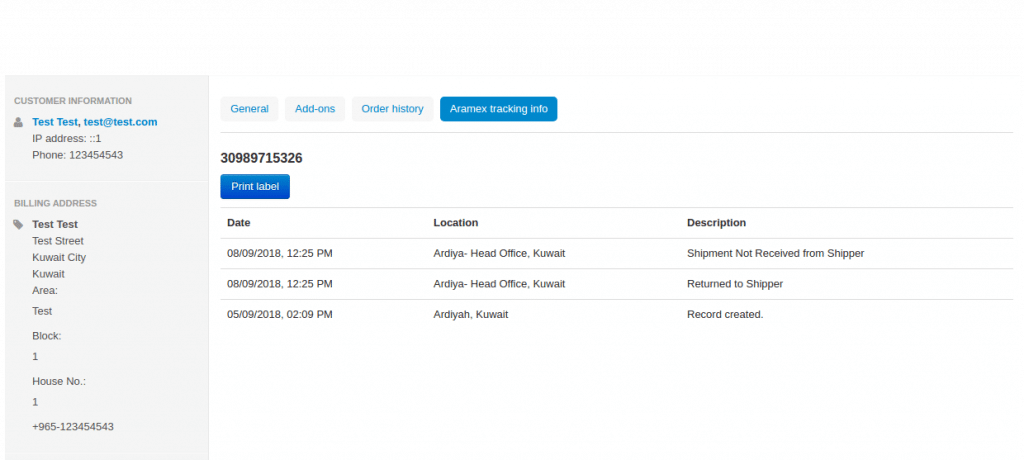The global eCommerce market grows independently of crisis. That growth is mostly contributed by emerging economies. At this, the Middle East and Africa (MENA) region is among the fastest-growing economies. Having the United Arab Emirates, Saudi Arabia and Egypt as leaders in online retail, the MENA eCommerce overall growth would be at a CAGR of 11% in the next years (2020-2022) according to Statista.
But what is the cornerstone of any shopping cart platform? Shipping of products. It’s no use to have an online business without a convenient shipping service in place. For the Middle East e-tailers, this issue is very sharp as the eCommerce is only taking its first steps there. So, this article is dedicated to cover a gap in the right shipping settings and selection of a reliable shipping service provider in this region.
eCommerce basics: what to start with and how to proceed?
Our eCommerce consultants recommend starting with the dropshipping model when you don’t need to have a warehouse and simply connect your online store with a supplier paying the margin to the later one.

Once your online business has grown, proceed with the establishing the order fulfilment model which is all about receiving, processing and delivering orders to end customers. The fulfillment will help to fully control delivery and maintain the quality of service at the proper level.

CS-Cart basics: what is the difference between shipment and shipping/delivery?
When speaking about the shipping models, it is crucial to make a difference between shipping and shipment and the eCommerce brand owners should be aware about that difference when dealing with the order dropshipping or fulfilment models.
The CS-Cart terminology clearly outputs it in its platform:
- Shipping methods –
They are used as shipping cost calculators, affect the order value, and are selected on the checkout. Administrators / vendors can set their own values or use ready-made calculators; - Shipments –
Shipments are created upon order creation and allow selecting a courier. They don’t affect the cost of order.
Integrations with shipping methods: default + extra
The standard CS-Cart platform has a great number of out of box shipping services connected by default:

They can be divided into two categories based on the method of shipping cost calculation:
Speaking about the real-time shipping services, the standard CS-Cart license allows you to get the most popular providers already connected to your shopping cart right from the license purchase:
- Australia / Canada / Swiss Post;
- DHL;
- FedEx;
- UPS;
- USPS;
- Temando.
To view the full list of providers, you will need to go to the admin panel, create a Real-Time shipping method, and then check all options in the Carrier and Shipping Service dropdown menus. You can find more detailed information in the original developer’s documentation.
The CS-Cart shipping methods allow you to automatically calculate the cost of delivery depending on:
- Delivery addresses;
- Order amount;
- The weight of the items per order;
- The number of items per order;
- Individual settings for each product.
Delivery for suppliers / vendors has it own specifics:
- Different suppliers may have different delivery methods;
- To calculate the cost of delivery in real-time, the supplier address is used;
- When buyers place an order for a supplier’s product, they can only choose the delivery methods available to the supplier;
- If the cart contains several goods from different suppliers, then several shipping methods can be applied at once, and the shipping cost is summed up.
For more information on how to successfully manage your delivery in eCommerce, see the article!
Additional shipping features
Label printing
Labels contain key information for each participant in the supply chain from the warehouse to the final customer. For each carrier (UPS, DHL, FedEx, etc.), a special template is used for labels. For example, the Aramex service template looks as below:


Automatic order tracking


Pick up from store
Stores and Pickup Points is the CS-Cart standard plugin that allows merchants to add and adjust a delivery block with the geographically precise shipping estimate:
- It shows all the locations of your physical stores and pickup points on the map* to customers.
*map will appear after configuring the Maps and Geolocation add-on. - It allows customers to choose where they want to pick up their items.
- Customers will be able to select the city from the list.
- It shows a map with the selected pickup point in the order-related documents: invoice and packing slips.
After all the corresponding settings are made, the CS-Cart and Multi-Vendor owners can create stores and pickup points and set the shipping rates and times depending on where to send the products. Customers benefit from being able to select the store or pickup point where they want to collect their orders.
Middle East specifics
In the Middle East, the latest tendency is towards:
- M-commerce: 56 percent of shoppers report using their mobile devices for shopping.
- finetuned delivery service: 58 percent of products purchased online by Middle Eastern shoppers were from overseas vendors.
- COD: 80 percent of online shopping in the Middle East is done using cash-on-delivery (COD).
A Market Research Study states that Saudi Arabia, one of the fastest-growing economies in the MENA (Middle East & Africa) region, has experienced a steady shift from offline shopping to online shopping in the recent past. Their eCommerce market is going to reach nearly US$ 24 Billion by 2026. The Saudi Arabian government is investing over US$ 100 billion in the development of logistics infrastructure to boost eCommerce growth in the region.
This example shows the importance of having various payment and shipping methods for the shopping platforms’ owners from the Middle East. In many ways, shipping and fulfillment options are the key to unlocking the eCommerce potential in the Middle East, as logistics is still the main obstacle holding this market back.
Having the right fulfillment and shipping providers connected to our marketplace or a webshop becomes crucial to capturing the right market for your business. Below are some popular options of reliable shipping or fulfillment partners which may probably meet your sales and growth targets.
What to integrate apart from default shipping in MENA?
Fulfilled by Souq
Fulfilled by Souq is the indisputable leader that holds the majority of the market share in terms of fulfilment service providers. The company is reported to fulfill over 1.2 billion items per year. Its market share is already 40 percent and is expected to reach 50 percent by 2021.
The service releases the merchants from putting efforts needed to pack, ship, and store goods. It is one of the simplest Middle East dropshipping options. It also can mark specified products with a special badge on their app and offers a filter for vendors to differentiate between products and ensure better awareness and outreach with the customers.
Fulfilled by Souq is a partner worth considering for shippers willing to capture the logistics and shipping market in the region.
Amazon
In 2016, the company introduced its Amazon Global Store aimed at customers in the United Arab Emirates. This paved the way for partnerships between more local companies and Amazon’s fulfillment services in the Middle East.
Amazon offers a user-friendly guide on how to set up a Fulfilled by Amazon (FBA) account for vendors. The only thing vendors need is to create product listings, which can be done: in bulk, individually, or by integrating an eCommerce software with Amazon’s API. Amazon also offers an optional preferred preparation and shipping supply service for vendors.
Fulfillment by Amazon can be a great option for vendors-newbies shipping and working within the Middle East for the first time. Assisted by Amazon’s extensive experience and network, they can quickly master the shipping and fulfillment sector local peculiarities.
Aramex
Aramex is one of the most recognized shipping companies in the Middle East. The Dubai-based Aramex was founded by Fadi Ghandour and Bill Kingston in the early 1980s, and continues to expand internationally.
Aramex consists of a network of over 40 independent partners which is still growing. It has recently expanded by 10 percent due to strong growth in cross-border eCommerce.
They develop their eCommerce activities and set their own fulfillment centers expanding into underserved markets such as sub-Saharan Africa, New Zealand, Australia and Southeast Asia.
Closing
Independently of your choice of a shipping service partner, the task of connecting a third-party logistics system to your CS-Cart platform is better to entrust to developers. We’ve been integrating third-party systems for CS-Cart for +14 years. You can trust the experience of our certified developers!
